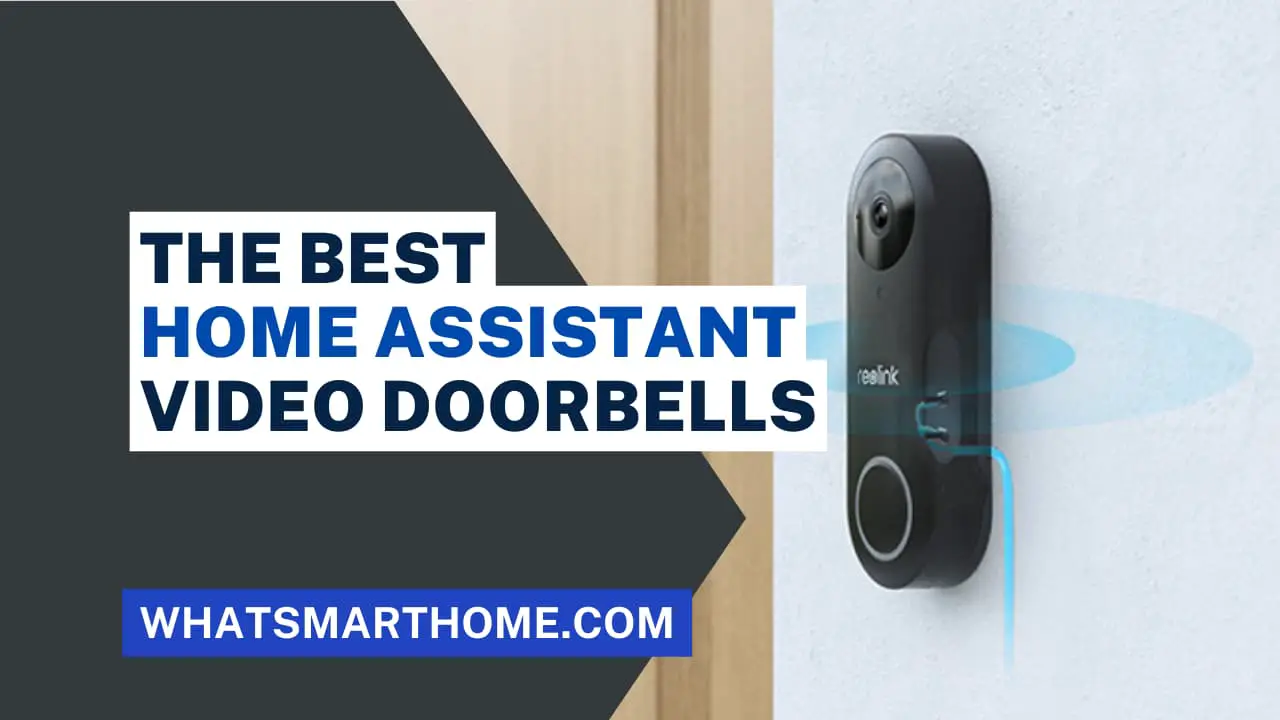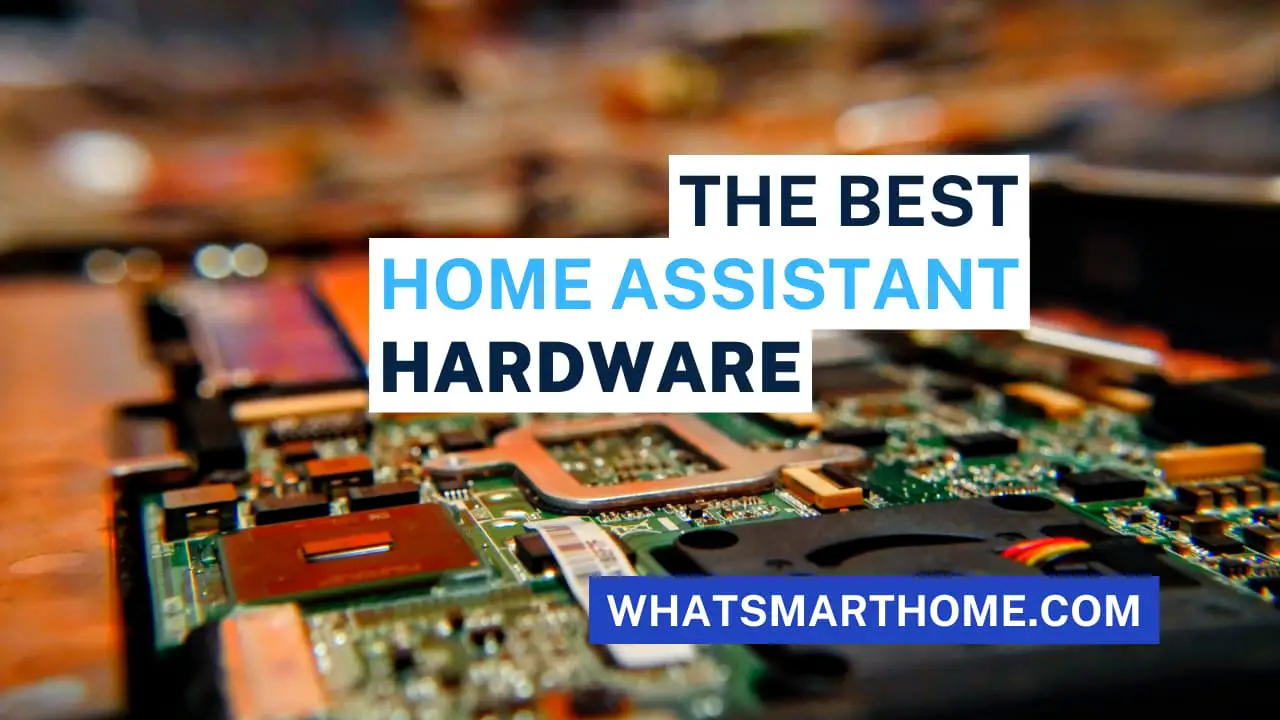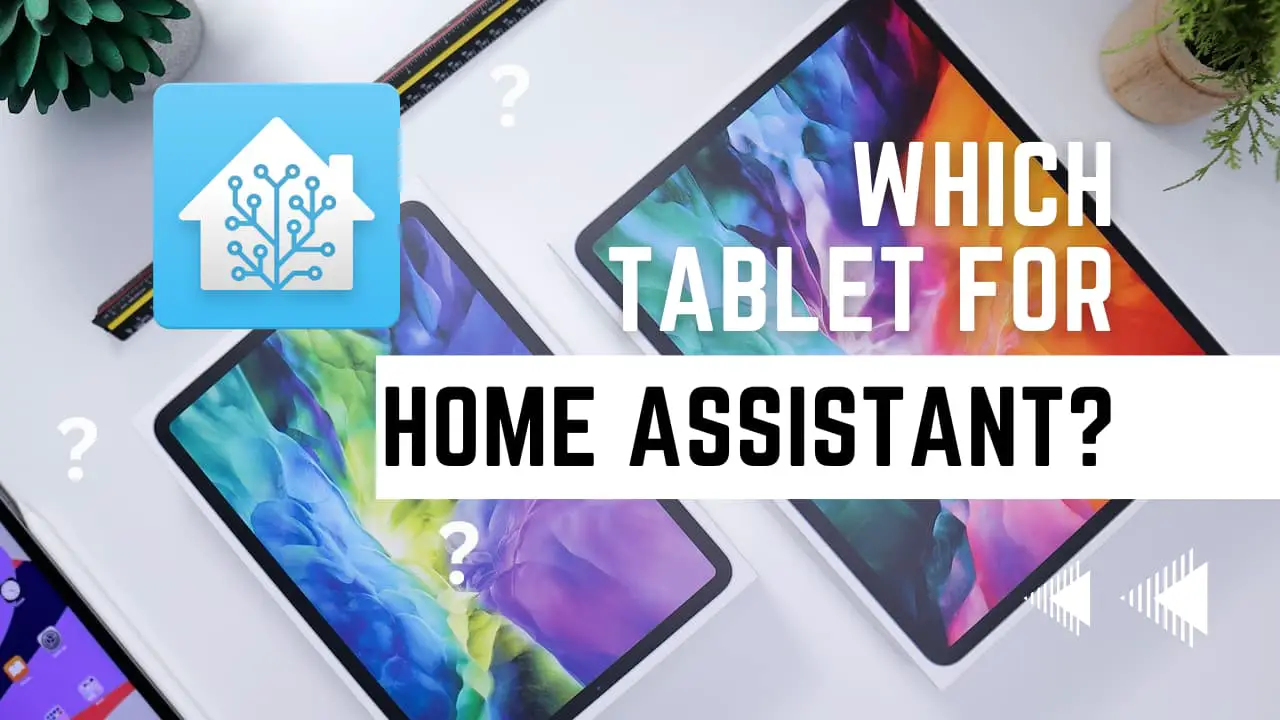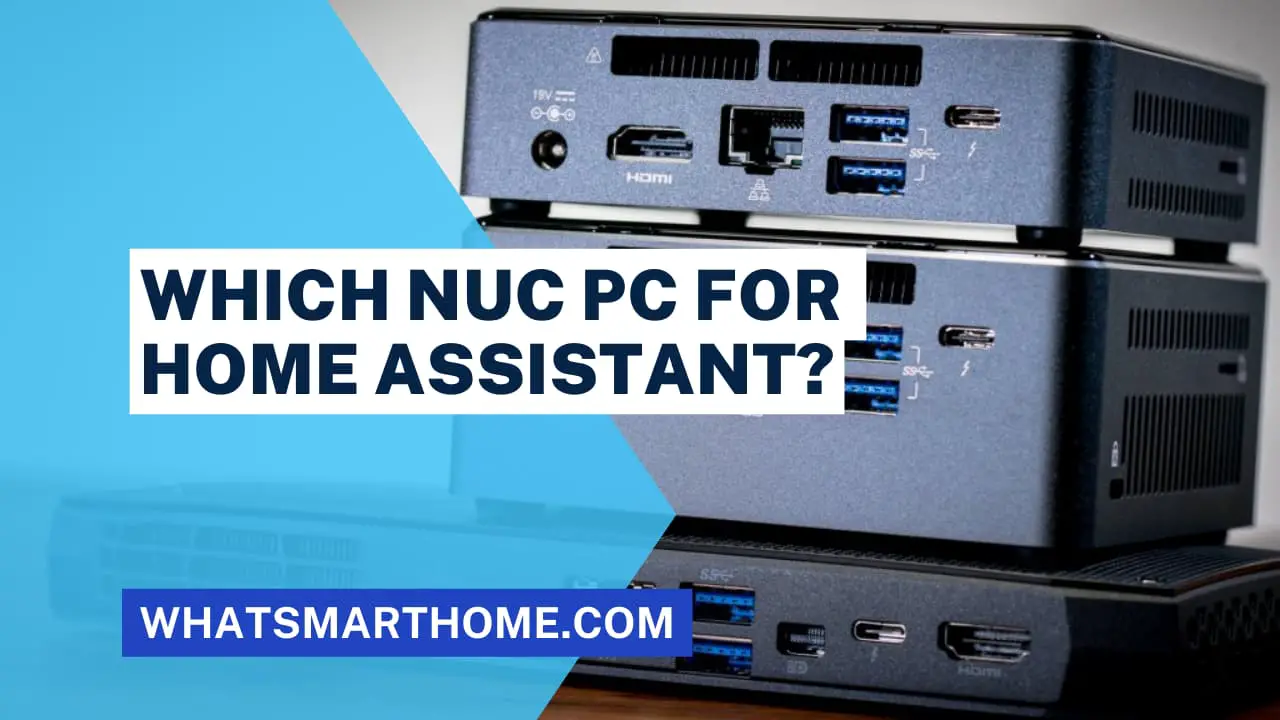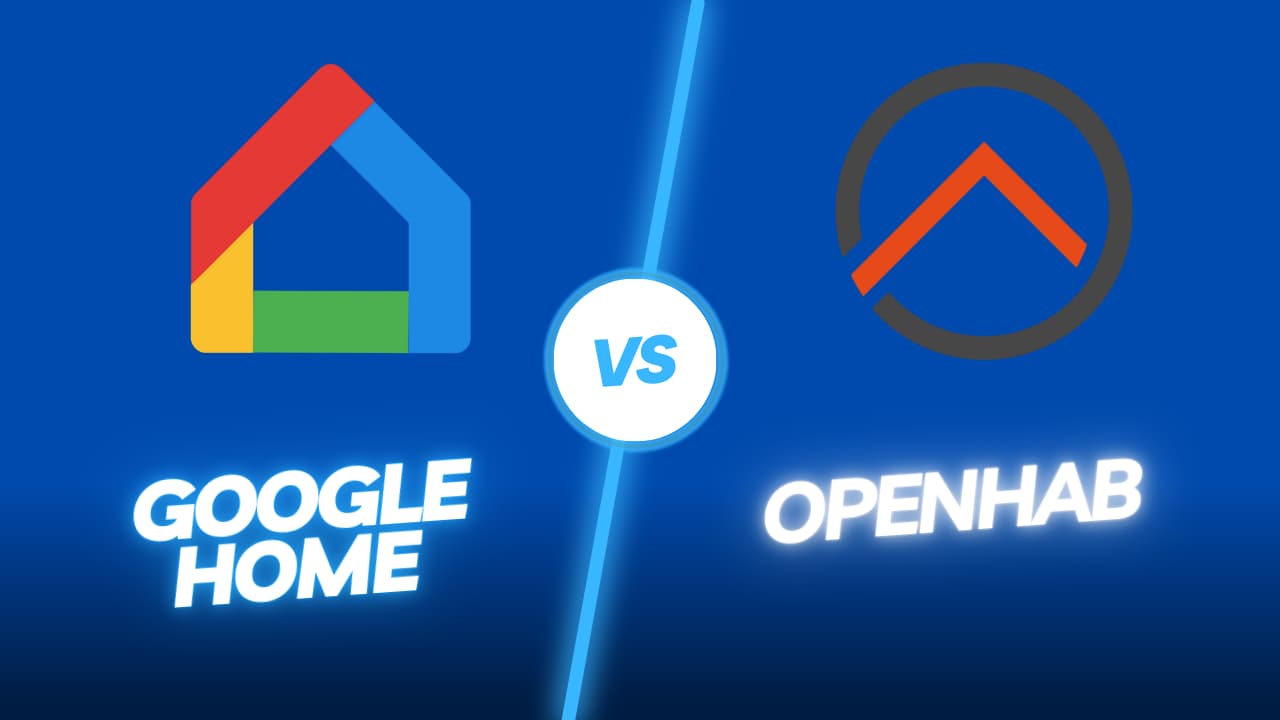
In the bustling world of smart home automation, Google Home and OpenHAB stand out as two leading contenders.
While Google Home offers the intuitive brilliance of Google's ecosystem, OpenHAB champions the versatility of open-source customization.
As we dive into this comparison of Google Home vs OpenHAB, let's uncover which system truly resonates with your smart home aspirations.
Introduction to Smart Home Technologies
The Rise of Smart Homes
Smart homes are no longer futuristic concepts seen in sci-fi movies. In today's world, they're a reality. From smart thermostats to interconnected lighting systems, our homes are becoming more responsive and intuitive. Imagine this: you're in your living room, cozily reading a book, and you can dim the lights or play your favorite music, all with a voice command or the tap of a button. Sounds like a dream, right?
The Need for Home Automation
But it's not just about luxury or the cool factor. Home automation systems serve a more profound purpose. They can significantly reduce energy consumption, provide enhanced security, and even support those with mobility challenges. But with several platforms out there, how do you decide which one is the best fit for you? Enter Google Home and OpenHAB.
Google Home: The Tech Giant's Foray into Home Automation
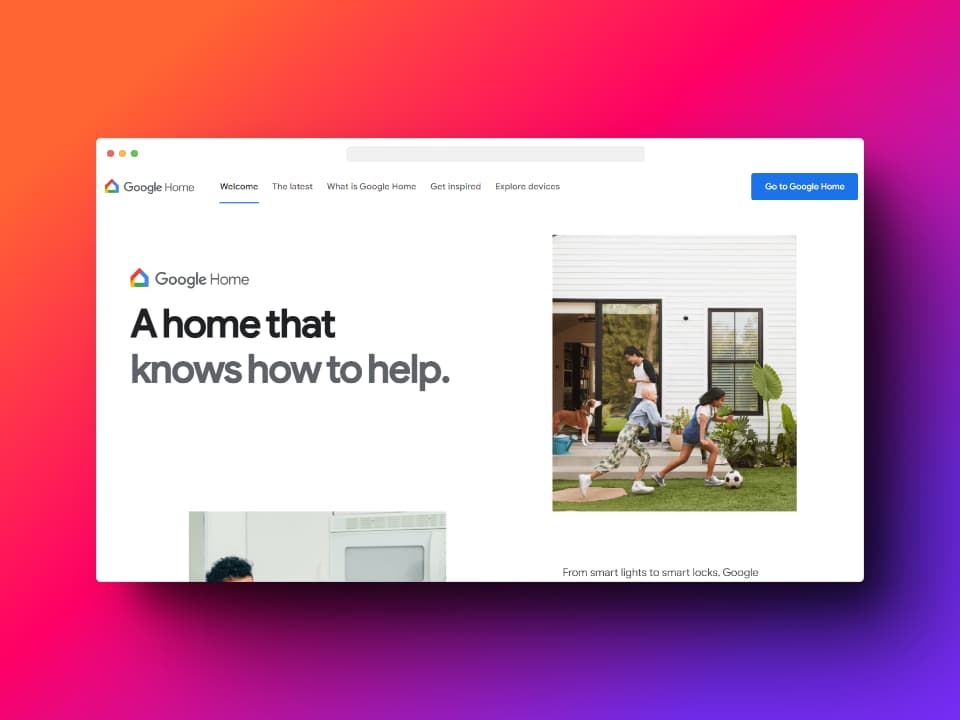
Google isn't just about search engines or email anymore. The tech behemoth is diving deep into home automation, and Google Home is a testament to this commitment.
Seamlessly integrating with a myriad of smart devices, this voice-activated assistant aims to make home management a breeze.
Powered by Google Assistant, it not only allows users to play music, set reminders, or get weather updates but also connects and controls various household gadgets.
Its intuitive interface, backed by the prowess of Google's vast ecosystem, offers users an unparalleled level of convenience.
Features and Benefits
Google Home is a user-friendly device that integrates seamlessly with various household gadgets. It offers voice-controlled commands through the renowned Google Assistant. Want to hear a joke or play a song? Just ask! The ecosystem is vast, making compatibility with other devices relatively straightforward.
Potential Drawbacks
However, being a proprietary system, it does come with some limitations in terms of customization. Plus, there are concerns about data privacy. Remember, Google's primary business model is based on data, so how much of your home data do you want them to have?
OpenHAB: The Open Source Alternative
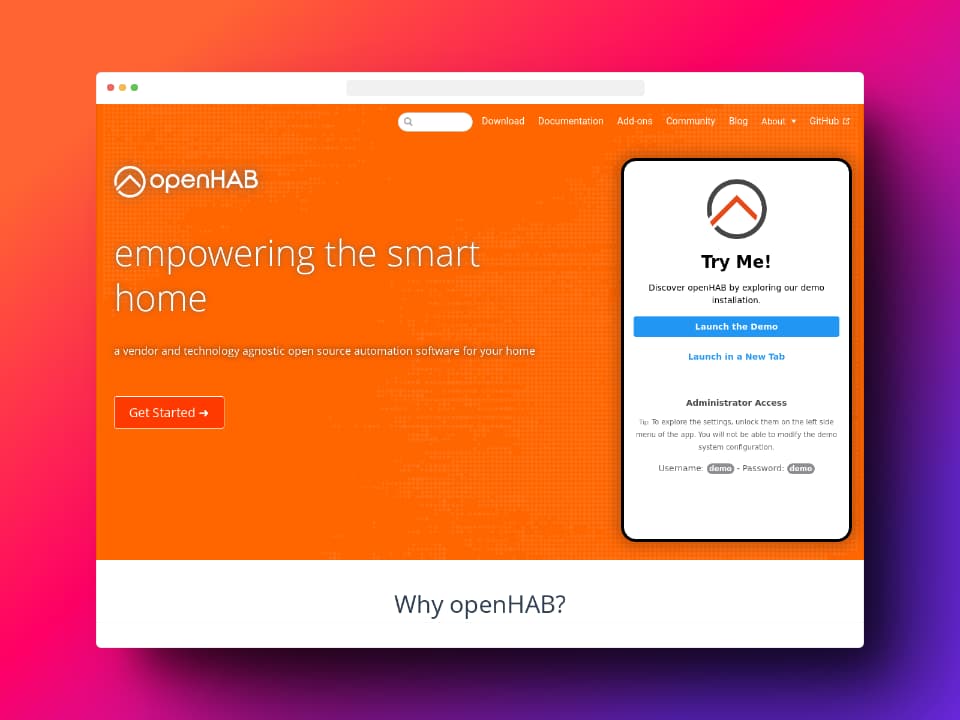
OpenHAB (short for "Open Home Automation Bus") is an open-source, platform-independent home automation system.
It allows users to integrate various home automation hardware from different vendors into a single, unified interface.
OpenHAB is highly customizable and can be extended with add-ons, catering to both beginners and tech-savvy enthusiasts. Its open-source nature ensures that the community drives its innovations, allowing for regular updates, and a high degree of personalization.
From smart lighting to advanced security systems, OpenHAB aims to bring all your smart devices under one umbrella, granting users the ability to tailor their smart homes exactly to their preferences.
What is Open Source?
In simple terms, open source means that the software is free and its source code is available to everyone. This fosters community collaboration, innovation, and rapid development.
Benefits of OpenHAB
OpenHAB's open-source nature means that it's incredibly flexible. You can customize it in myriad ways, integrate it with a wide variety of devices, and even add unique functionalities. And because it doesn't rely on a centralized company's cloud, your data stays with you.
Possible Concerns
But, like everything, it's not all sunshine and roses. OpenHAB can have a steep learning curve, and setting it up might not be as straightforward as its commercial counterparts.
Comparing Google Home vs OpenHAB
In the realm of smart home automation, choosing the right system can make all the difference. As technology evolves, the decision boils down to balancing convenience, customization, and privacy.
Google Home and OpenHAB, two frontrunners in this race, offer intriguing possibilities.
While Google Home boasts of seamless integration and user-friendliness, OpenHAB champions the ethos of open-source flexibility.
Google Home is a commercial platform that is easy to set up and use. It integrates with a wide range of smart home devices, including lights, thermostats, locks, and cameras. Google Home can also be used to control music playback, get news and weather updates, and set timers.
openHAB is an open-source platform that is more complex to set up and use than Google Home. However, openHAB is more flexible and extensible than Google Home. It can be used to integrate with a wider range of devices, and it can be customized to meet specific needs.
As we delve deeper into their features, strengths, and potential drawbacks, let's unravel which of these systems might be the perfect fit for your home.
User-friendliness
Google Home undoubtedly takes the crown here with its intuitive setup and user interface. OpenHAB, while powerful, requires a bit more tech-savviness.
Flexibility and Customization
OpenHAB is the king of customization, while Google Home offers fewer personal tweaks.
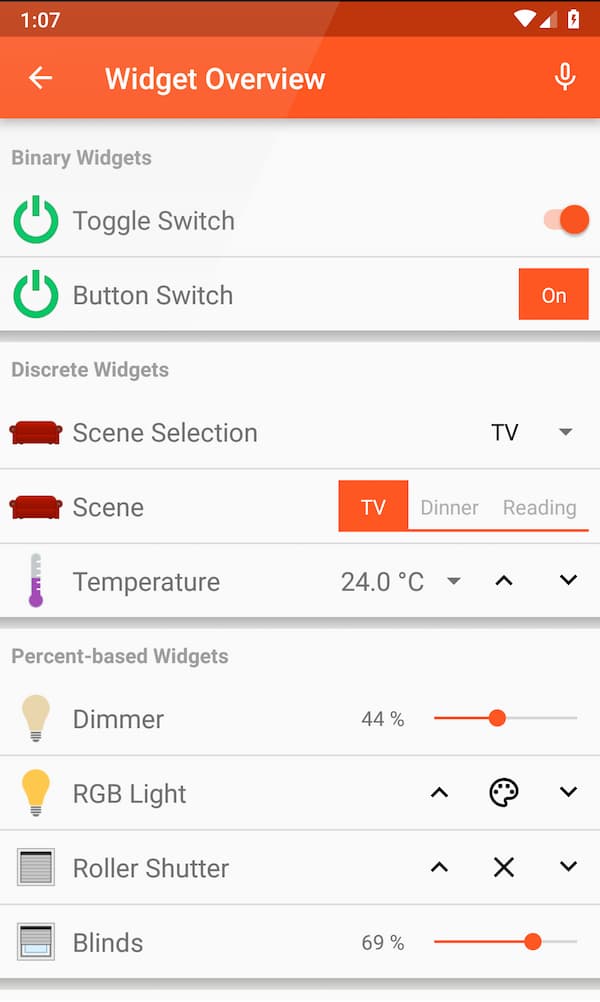
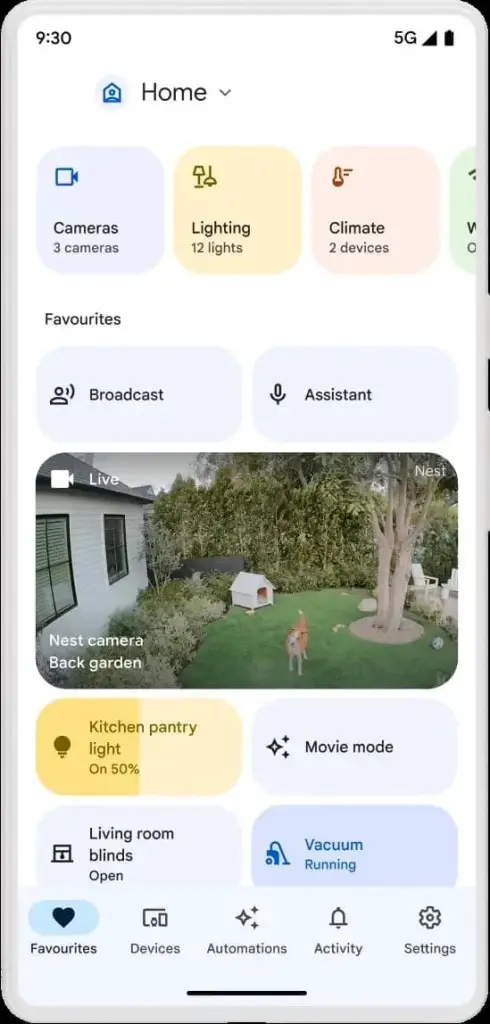 OpenHAB vs Google Home: mobile interface compared
OpenHAB vs Google Home: mobile interface comparedSecurity and Privacy
If data privacy is a significant concern, OpenHAB provides more control. However, Google Home offers robust security measures, albeit with potential data sharing.
Making the Right Choice for Your Home
Your choice ultimately depends on what you value more: simplicity and integration or flexibility and privacy.
Google Home and OpenHAB Comparison
| Feature | Google Home | OpenHAB |
|---|---|---|
| Cost | Commercial | Open source |
| Ease of use | Easy to set up and use | More complex to set up and use |
| Device compatibility | Wide range of devices | Very wide range of devices |
| Flexibility | Less flexible | More flexible |
| Customizability | Less customizable | More customizable |
| Privacy | Collects personal data | Does not collect any data |
Which platform is right for you?
The best platform for you will depend on your needs and preferences.
If you are looking for an easy-to-use platform that integrates with a wide range of devices, then Google Home is a good option.
If you are looking for a more flexible and extensible platform that can be customized to meet specific needs, then OpenHAB is a good option.
Here are some additional things to consider when choosing between Google Home and OpenHAB:
Your technical expertise: If you are not comfortable with technology, then Google Home is a better option. OpenHAB is more complex to set up and use, and it requires some technical knowledge.
Your budget: Google Home is a commercial platform, so it costs money to use. OpenHAB is open-source, so it is free to use.
Your privacy concerns: Google Home collects data about your voice and activities. If you are concerned about privacy, then OpenHAB is a better option. OpenHAB does not collect any data about you.
Conclusion
The world of smart homes is vast and ever-evolving. Both Google Home and OpenHAB have their strengths and weaknesses.
If you like the idea of an open-source system like OpenHAB then check out my Home Assistant vs OpenHAB article.
Decide based on your comfort, needs, and the vision you have for your smart home.
After all, home is where the heart is, right? Why not make it as smart as your heart desires?
I hope this helps!



